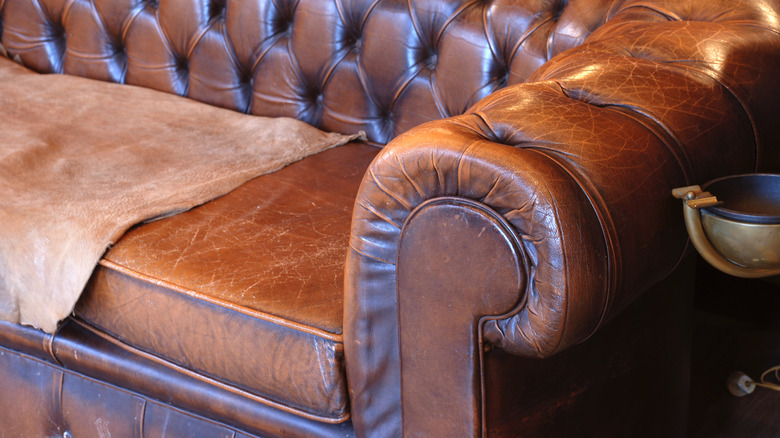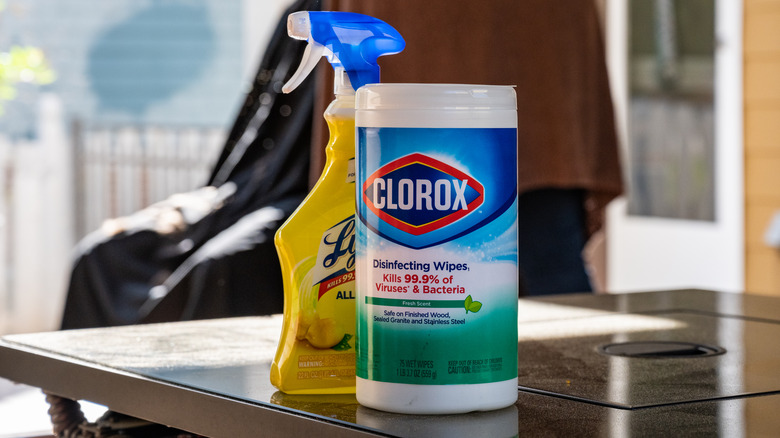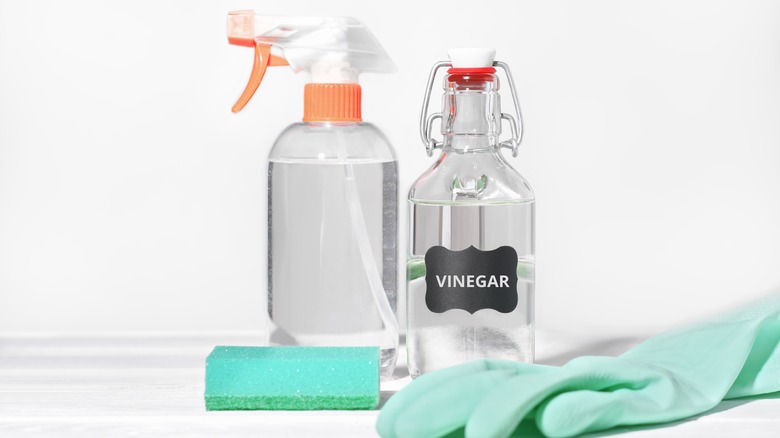Clorox Wipes And Your Favorite Leather Goods Do Not Mix - Here's Why
Whether it's a cookie-crumb rebellion on your much-loved leather couch or the stubborn sticky soda stain "claiming territory" on the car seat, quick fixes lie at the heart of our cleanliness endeavors. In desperation, our mental lights spotlight the popular Clorox wipes. But hold onto your rubber gloves because this instant hero might not be the leather knight in shining armor you may have anticipated. Indeed, the very thing that makes these disinfecting cloths your champion against germs — isopropyl alcohol — is a serious party pooper in the realm of lavish leathers. This alcohol fiend can underhandedly rob your leather of its precious natural oils, leaving it thirsty, parched, and even brittle over time. Picture the leather equivalent of Spongebob in Sandy's dome without his water helmet: not the situation any self-respecting leather owner wants to envision.
And so the question arises, "What about Lysol wipes?" Don't, for Lysol wipes share similar misdeeds as the Clorox counterparts. Let's cut to the chase and reveal the silver lining. Several gentle leather heroes out there can sanitize and condition without committing the crime of dehydration. Among these are vinegar, watered-down, of course, and alcohol-free disinfectant wipes. And if your leather needs a deep clean? Trust the experts and schedule a professional cleaning service. After all, a little investment today can save you a hefty leather repair or, even worse, replacement bill.
Why cleaning leather with Clorox wipes doesn't work
Clorox wipes often come across as an omnipresent ally in the battle against dirt, grime, and invisible bacteria, not to mention a useful tool for quick clean-ups. But as every superhero has their kryptonite, so does the mighty Clorox wipe. Its fatal flaw? Leather. It's a tough material but also natural, owing to its suppleness to natural oils. And therein lies its vulnerability. The alcohol in Clorox and Lysol wipes, about as gentle on leather as a steel brush to the face, swiftly and uncharitably strips the protective layer of oils. The results? Dryness, cracking, and damage to the integrity of the material. These harsh chemicals can wage an assault on your innocent leather items, prompting an unwelcome onslaught of color fade and discoloration.
Another grievance against alcohol-based wipes involves the olfactory crime they perpetrate. The ammonia-like smell, while a comforting harbinger of cleanliness on bathroom surfaces, doesn't translate productively to leather goods. It can be persistent, negating the subtle, natural scent of high-quality leather that many people adore. However, there is an exception: synthetic leather. Often considered the affordable cousin, synthetic or faux leather doesn't incorporate natural fibers. You can, therefore, expect the non-porous plastic resin-coated fabric to stand tall against the drying assault of alcohol-based cleaners. An ironically sweet victory for the underdogs!
How to disinfect leather without alcohol-based wipes
Were Leather and Clorox wipes Facebook friends, they'd categorize their relationship status as "It's Complicated." Wouldn't your delicate leather possessions be better off with kinder, gentler companions? Enter alcohol-free disinfectant wipes like the Zogics Antibacterial Wipes on Amazon. These sweet darlings brim with the prime disinfectant power you crave, keeping your leather items safe from unseen organisms without the harshness of alcohol. Post-disinfection, a specially formulated leather conditioner should spruce your leather item with the radiant appearance of a dew-kissed leaf on a sunny morning — cleaned and rejuvenated.
And what if we told you there's a home-brewed version of a leather disinfectant? Vinegar, the unsung star in your kitchen pantry, magically turns into a shrewd leather guardian when treated right. The key, however, is dilution, obtained by blending equal portions of white vinegar and water. You get a potent yet gentle disinfectant mixture ready to rescue your leather items from microbial nasties. Though, just like any good action-adventure story, there's a caution: always run a patch test. Dab the diluted vinegar to a small, hidden area of your leather to ensure the solution doesn't trigger any discoloration or damage before you let it loose on the entire surface.


